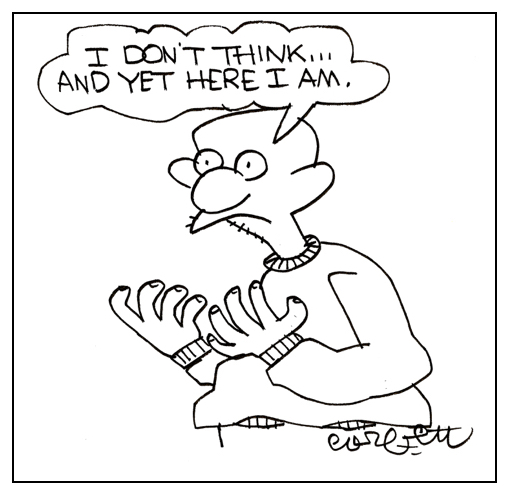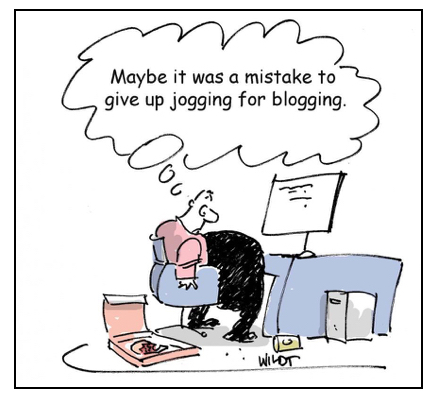 In 2015 I was exposed to a lot of new ideas, concepts, and principles, primarily from the 52 books I read. Here are five concepts/principles that significantly affected me. [Click here for a post I wrote on Embrace significant thoughts.]
In 2015 I was exposed to a lot of new ideas, concepts, and principles, primarily from the 52 books I read. Here are five concepts/principles that significantly affected me. [Click here for a post I wrote on Embrace significant thoughts.]
1. We have control of our lives, therefore we are responsible for our lives.
In the past 12 months, at different times and from different sources, I read the following statements.
- It became clear to him (Viktor Frankl) that what sort of person he would wind up being depended upon what sort of inner decision he would make in response to his circumstances.
- Incredible change happens in your life when you decide to take control of what you do have power over instead of craving control over what you don’t. Steve Maraboli
- Most human beings in their early lives develop only as far as necessary to cope adequately with their environment. (Moshe Feldenkrais) A smaller number, probably less than 20 percent of people, continue learning and growing more than necessary—all through their adult years. These are people who think of themselves as “works in progress” with a sense of growing and becoming that brings joy to their lives.
- Life is a sum of all your choices. Albert Camus
- The greatest discovery of my generation is that human beings, by changing the inner attitudes of their minds, can change the outer aspects of their lives…It is too bad that more people will not accept this tremendous discovery and begin living it. William James
- Don’t play victim or martyr; accept responsibility and authority for the consequences in your life. Karl Albrecht
Together, these statements have solidified my conviction that ultimately, we have control over our lives because we control our choices, decisions, and attitudes. I am what I am because of the choices I have made. I take responsibility for this and will not blame other people for my misfortunes or adversities.
I wrote about this topic in the post Accept responsibility for your life
2. We need to fine-tune our crap-detector.
I learned this term from Karl Albrecht in his must-read book, Brain Power.
Albrecht says, “The truth is that we human beings are very easily manipulated. We don’t like to admit it, but we’re unconsciously manipulated every day. Some people make a living by capitalizing on the irrational behavior patterns they can induce in others.”
We need to maintain a healthy level of skepticism and be wary of those who want to mislead, deceive, and take advantage of us.
Just having this term—crap-detector—in my vocabulary has helped me be more discerning. I was in a meeting several weeks ago and “beep, beep, beep” my crap-detector starting humming. I had the emotional fortitude to speak up and expose the ruse.
I wrote a post about this titled Be skeptical – fine-tune your crap-detector
3. “Never be a spectator of unfairness or stupidity.” Hitchens
I am not a confrontational person. I’m a diplomat not a fighter. But this statement has challenged my thinking and wrestled me to the mat. It has helped me be more forthright and honest.
4. Our highest joy comes from giving to and serving others.
In 1954, Psychologist Abraham Maslow published a book titled Motivation and Personality in which he suggested that all humans are motivated by a common hierarchy of needs, commonly displayed as a pyramid in which the most basic needs—physiological (air, water, food and shelter)— are placed at the bottom. Once these needs are met we gravitate to the second set of needs—safety and security. When we’re convinced that these needs are met we long for love and a sense of belonging. Then comes self-esteem. The highest aspiration, he suggested, is self-actualization—“What a man can be, he must be.” A teacher must teacher; a painter must paint.
But in his later years, Maslow added another dimension of needs at the top of the pyramid, a need even greater than and more rewarding than self-actualization—self-transcendence—going beyond our own needs and individual experience and giving oneself to others. His final conclusion was that self-actualization is not the ultimate goal in life, but transcending self and focusing on others, is.
We must resist the natural tendency to focus on self and instead focus on others. Our greatest joy in life will come from giving to and serving others.


 Thank you for subscribing to my blog site. I hope my posts have been beneficial. I posted my first essay on December 10, 2014 and have posted once a week for the past 52 weeks. I started with 10 subscribers, I now have 3,500+
Thank you for subscribing to my blog site. I hope my posts have been beneficial. I posted my first essay on December 10, 2014 and have posted once a week for the past 52 weeks. I started with 10 subscribers, I now have 3,500+